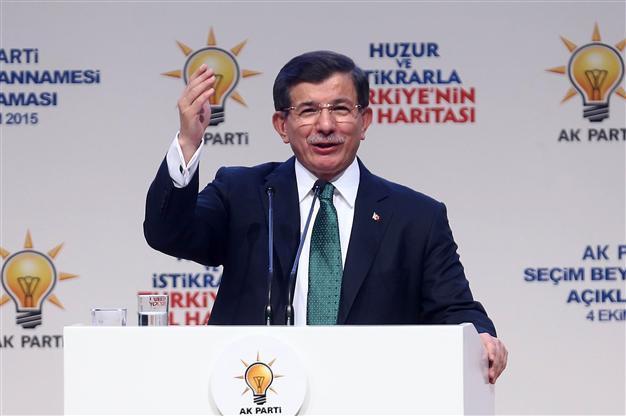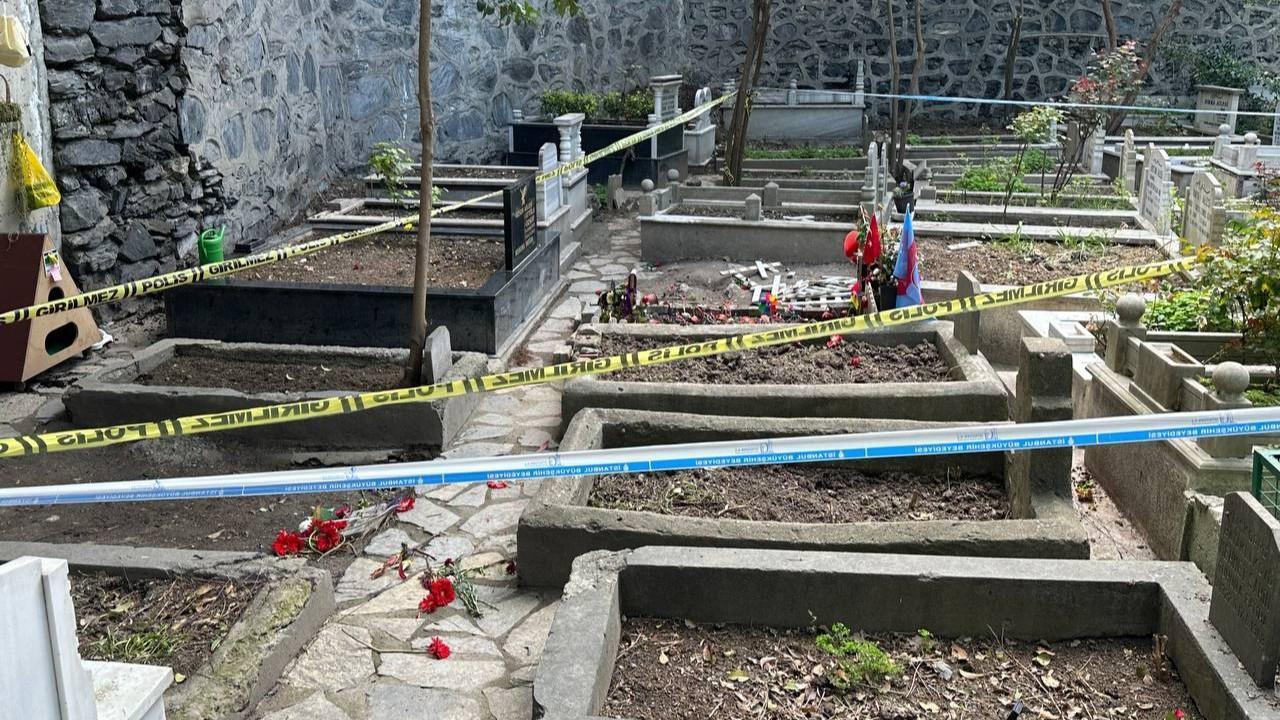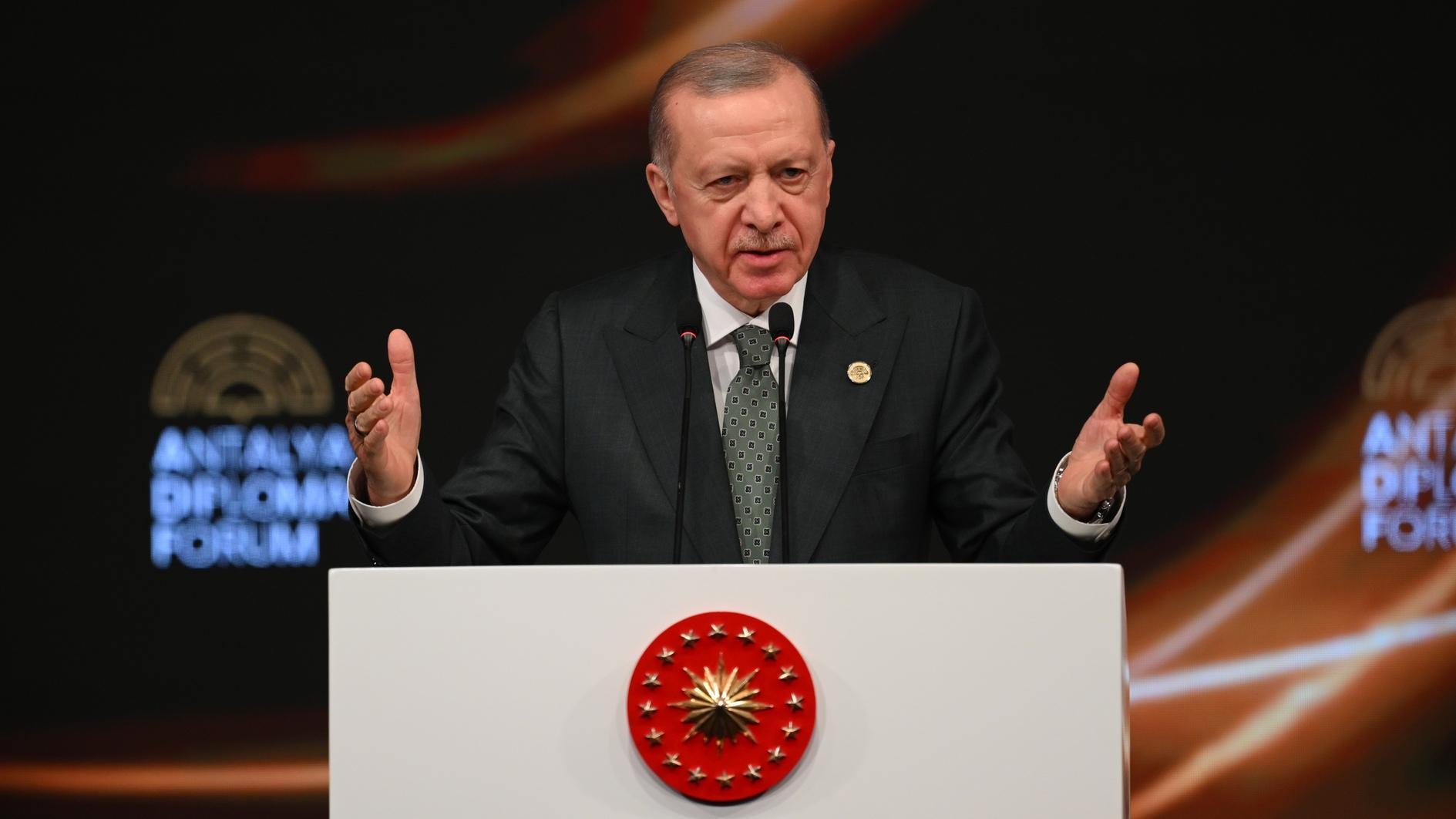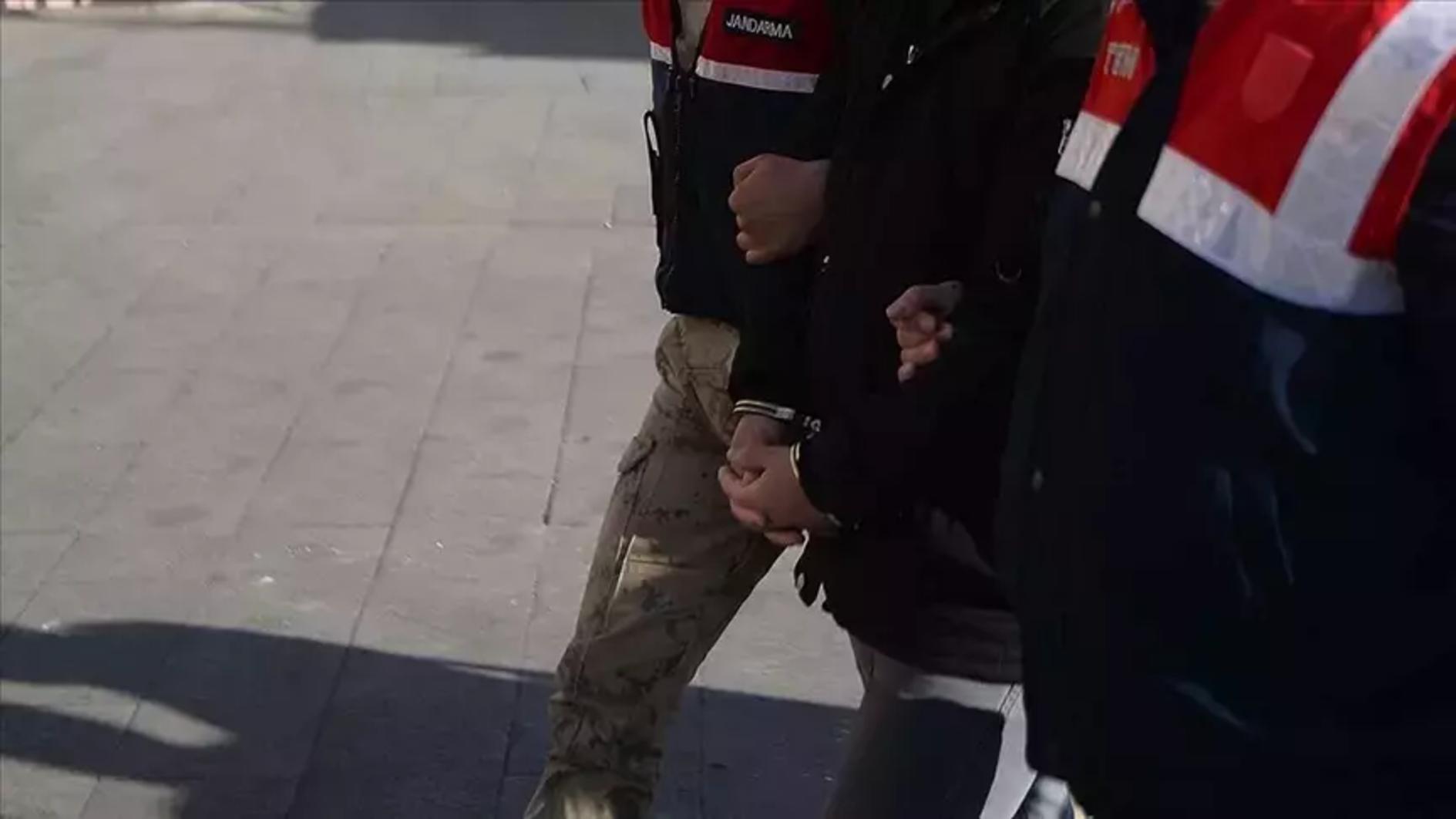New constitution, presidential system high on AKP’s agenda
ANKARA

Prime Minister and Justice and Development Party (AK) Chairman Ahmet Davutoglu speaks at a meeting to declare the party's election manifesto for the upcoming November 1 general elections in Ankara on October 4, 2015. AFP Photo
The Justice and Development Party (AKP) has announced its manifesto for the Nov. 1 elections, keeping promises to focus on a new constitution and a presidential system together with bold and assertive pledges on the economy.While presenting the party’s manifesto Oct. 4, AKP leader and Prime Minister Ahmet Davutoğlu paid respects to President Recep Tayyip Erdoğan, the founding leader of the AKP.
“From here, on behalf of you, I offer my respect and affection to our founding leader, chairman and President Recep Tayyip Erdoğan,” Davutoğlu said, as he addressed a mass gathering held at the Congresium Hall of the Ankara Chamber of Commerce (ATO).
“Eliminating security vacuums which stem from different reasons during the process, protecting the region’s people from the oppression of the tyrannical and cruel organization is among the primary duties of our state,” he said in reference to the outlawed Kurdistan Workers’ Party (PKK) which has staged retaliatory attacks against the military since the end of a cease-fire in July following a suicide attack in Suruç that the group blamed on the duplicity of the AKP.
“The architect, coordinator and engine of both the resolution process and of our national unity and fraternity is the AK Parti and will be the AK Parti,” he said.
The renewed conflict has left in tatters a peace process, dubbed the “resolution process” by governmental officials, which Ankara launched and which Erdoğan recently said “is in the fridge.”
In its manifesto presented with the motto of “Turkey’s roadmap to Serenity and Stability,” the AKP reiterated its pledge for a brand new constitution and eventual shift to a presidential system.
“In the face of political instabilities led by the parliamentary system, we believe that the libertarian presidential system based on an understanding of effective and dynamic governing, which our vision of Turkey needs, is more convenient. In the new system, no parallel structure which is not answerable to the legitimate political authority and legal system will be permitted,” Davutoğlu said.
A “parallel structure” within the state is said to have been established by followers of the AKP’s ally-turned-foe, U.S.-based Islamic scholar Fethullah Gülen, known as Gülenists, who have been charged with wiretapping hundreds of thousands of state officials through operations by members employed in the judiciary and police.
“To participate in silent revolutions which we carried out in 13 years with a lasting order and to see our country among the most developed in the world according to all democratic criteria on the 100th anniversary of the [founding of] our Republic, as the AK Parti, we promise a new constitution as the basis of our declaration. A new constitution is the cornerstone of the new Turkey,” Davutoğlu said.
The AKP failed to form a single-party government in the June election for the first time after winning three consecutive elections since November 2002. In the run-up to the June parliamentary election, Erdoğan held a series of large public rallies where he made little secret of his preference for a single-party rule by the AKP as a majority would have been sufficient to change the constitution and grant him sweeping powers as an executive president.
Alevis
Davutoğlu made a striking promise to the Alevi community, saying they would extend cemevis, the Alevi houses of worship, with “legal status.”
The government has long refused to recognize cemevis as houses of worship on the grounds that the only place of worship in Islam, the religion to which Alevis putatively belong, is the mosque.
Old and young
The AKP’s pledges in economic and financial fields were reminiscent of a detailed framework presented by the Republican People’s Party (CHP) for its program which included concrete and down-to-earth promises.
The AKP pledged to raise the minimum wage to 1,300 Turkish Liras, give pensioners a monthly pay rise of 100 liras, permanently employ subcontractors working at public institutions, exempt young people starting a new business from income tax for three years, provide cash support of up to 50,000 liras to young people who want to start a business, provide unlimited and free access to young people, implement a Family Social Support Program (ASDEP) that will reach all disadvantaged people who need social services, continue low interest loans for craftsmen, provide interest-free loans of up to 30,000 liras and construct a three-story Istanbul Tunnel Project that will accommodate 6.5 million people a day and connect to nine separate railways systems.
Meanwhile, the AKP also vowed to lower the minimum age to become a candidate for parliament from 25 to 18 as well as conduct university entrance exams more than once in a year in order to ease pressure on students.
Davutoğlu will hold his first rally for the Nov. 1 elections in the Black Sea province of Samsun on Oct. 5 and the second one in the eastern province of Erzurum on Oct. 6. He is expected to hold rallies in 23-24 provinces in total before Nov. 1.
















